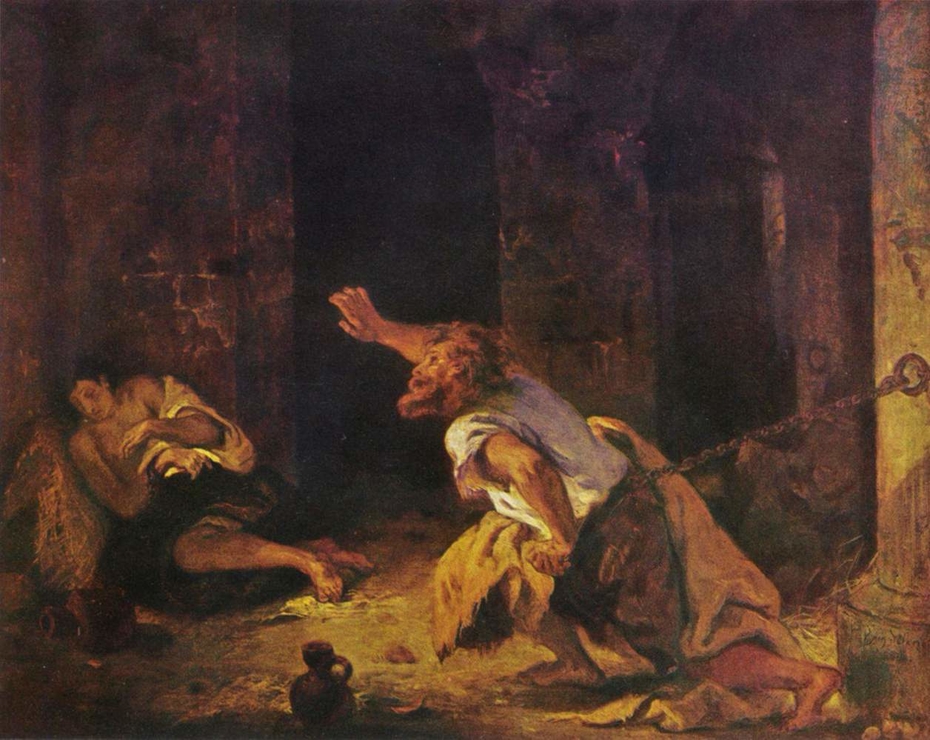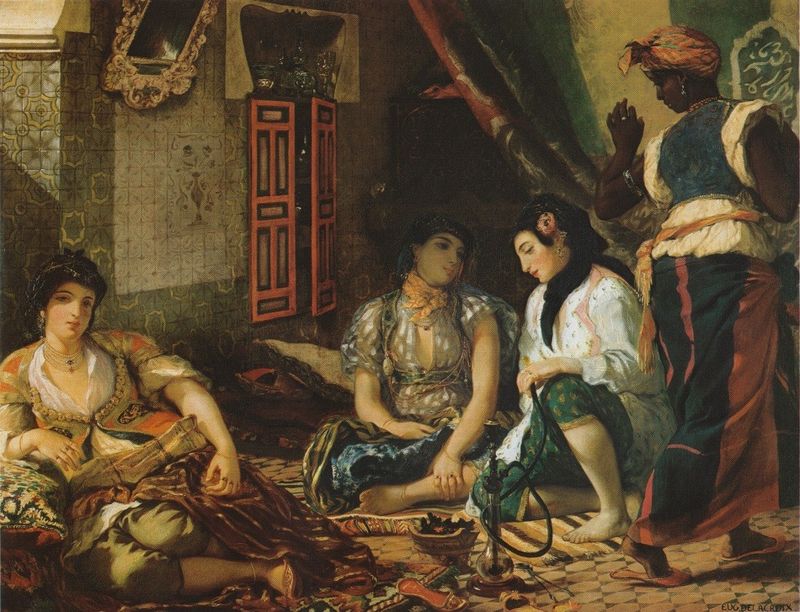For the first time since the 1963 exhibition celebrating the 100-year anniversary of his death, this event will pool over 180 artworks by the artist, including a large number of paintings: from the young artist’s big hits at the Salon of 1820 up to his final less known and mysterious religious and landscape compositions.
The exhibition, from March to July 23, 2018, will showcase the tensions that formed this artist, striving for individuality while driven by aspirations to follow in the footsteps of 16th and 17th-century Flemish and Venetian artists. The installations and information provided will provide insight into his long, rife, and diverse career.
The exhibition will bring together masterpieces by Delacroix from museums in France (Lille, Bordeaux, Nancy, Montpellier, etc.) and exceptional international loans, particularly from the United States, Great Britain, Germany, Canada, Belgium, and Hungary.
Much remains to be learnt about
Delacroix’s career. It spanned a little over forty years, from 1821 to
1863, but most of his best known paintings were produced during the
first decade. The output from the next three quarters of his career is
difficult to define, as it cannot be confined to a single artistic
movement. Although Delacroix is often hailed as a forerunner of modern
colorists, his career does not always fit a formalist interpretation of
19th-century art.
The exhibition is organized in three
sections, presenting the three major periods in Delacroix’s long career
and highlighting the motivations that may have inspired and guided his
painting. The first section — focusing on the conquest and triumph of
the first decade — studies the artist’s break with neoclassicism and his
renewed interest in the expressive and narrative possibilities of
paint. The second part explores the ways in which his large public
murals (his main activity from 1835 to 1855) impacted on his easel
painting, with its visible tension between the monumental and the
decorative. Finally, the third section shows how his later years were
seemingly dominated by a keen interest in landscape painting, tempered
by an attempt to extract the essence from his visual memories.
These keys to interpretation allow for a
new classification that goes beyond a mere grouping by genre and
transcends the classical–Romantic divide, indicating instead that
Delacroix’s painting resonated with the great artistic movements of his
day: Romanticism of course, but also Realism, eclecticism, and various
forms of Historicism.
Exhibition curators:
Sébastien Allard, Director of the Department of Paintings, Musée du
Louvre; Côme Fabre, Department of Paintings, Musée du Louvre; Asher
Miller, Department of European Paintings, The Metropolitan Museum of
Art.
Eugène Delacroix, Liberty Leading the People, Musée du Louvre, Department of Paintings © musée du Louvre, dist. RMN / Angèle Dequier

Eugène Delacroix: Passion and Inspiration | Louvre Museum | Paris
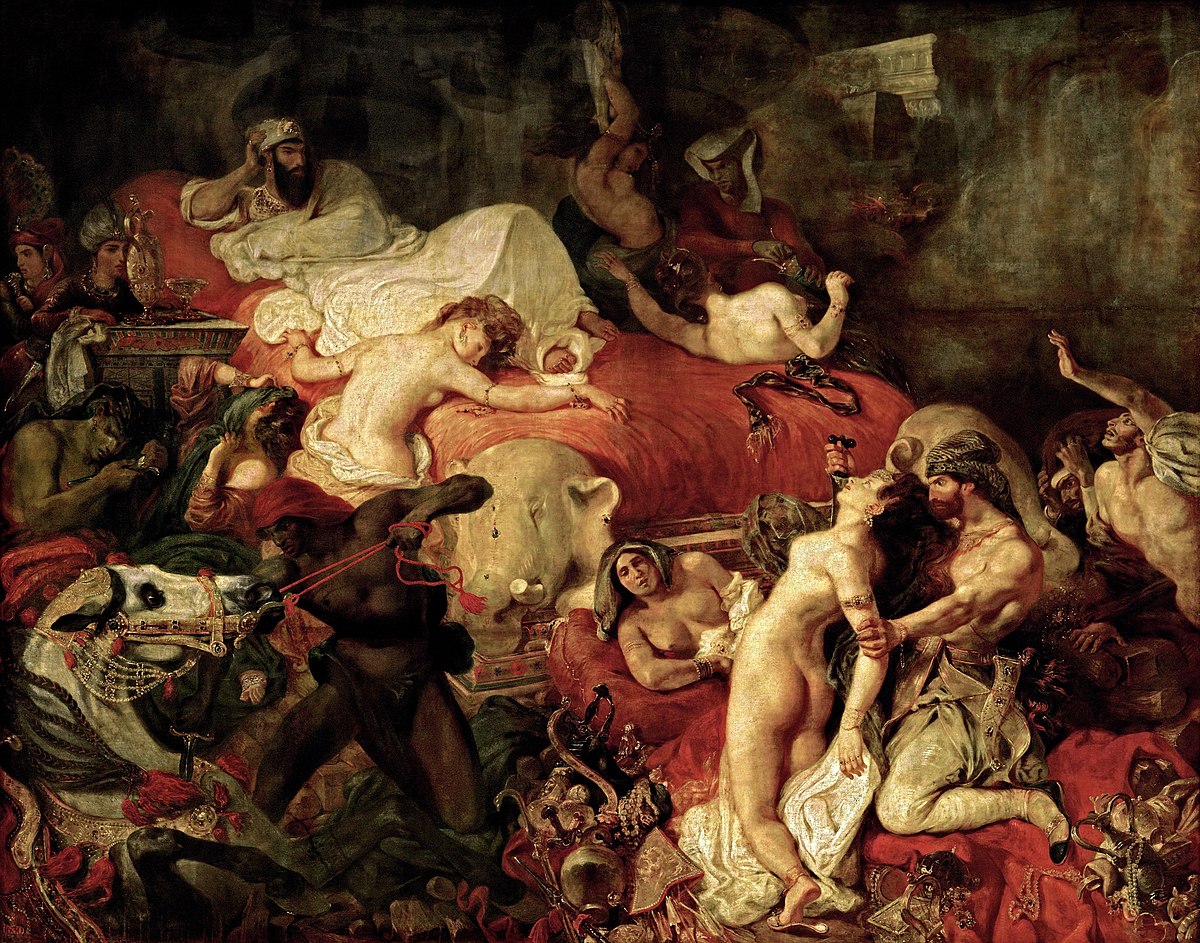
Death of Sardanapale, by Eugene Delacroix, 1827, Musee du Louvre Museum, Paris, \
More Eugène Delacroix, Musée du Louvre:

The Barque of Dante
Hamlet and Horatio in the graveyard
Jewish wedding in Morocco
Young orphan girl in the cemetery
The prisoner of Chillon
The Abduction of Rebecca
Medea
The Massacre at Chios
Eugène Delacroix, Still Life with a Lobster. 1827 Salon. Oil on canvas. 80 x 106.5 cm. Musée du Louvre, Paris © RMN-Grand Palais (musée du Louvre) / Stéphane Maréchalle

Eugène Delacroix - Les Natchez, 1835 (Metropolitan Museum of Art)
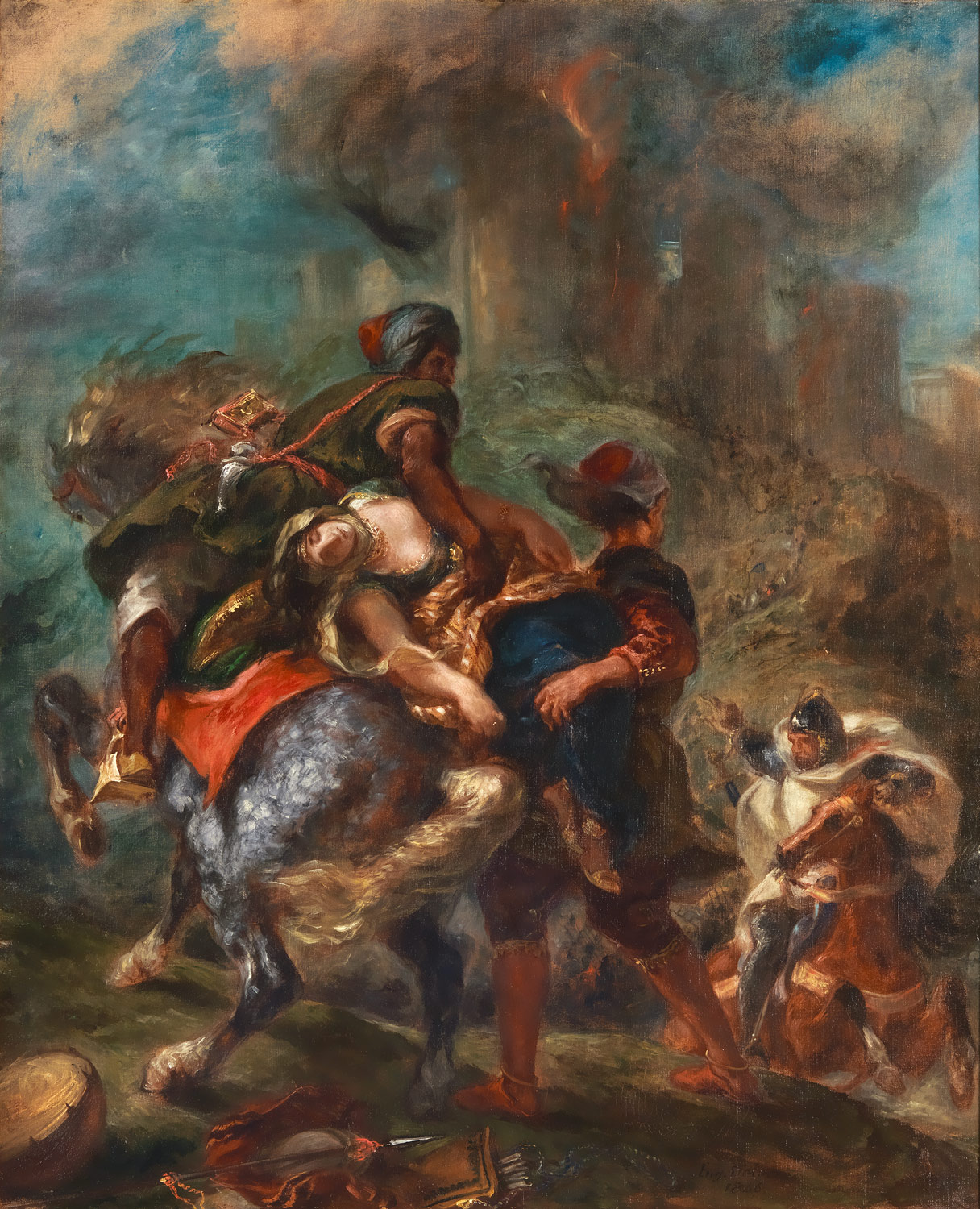
Eugène Delacroix - The Abduction of Rebecca (Metropolitan Museum of Art)

Eugène Delacroix - Christ Asleep during the Tempest (Metropolitan Museum of Art) ca. 1853, H. O. Havemeyer Collection, Bequest of Mrs. H. O. Havemeyer, 1929
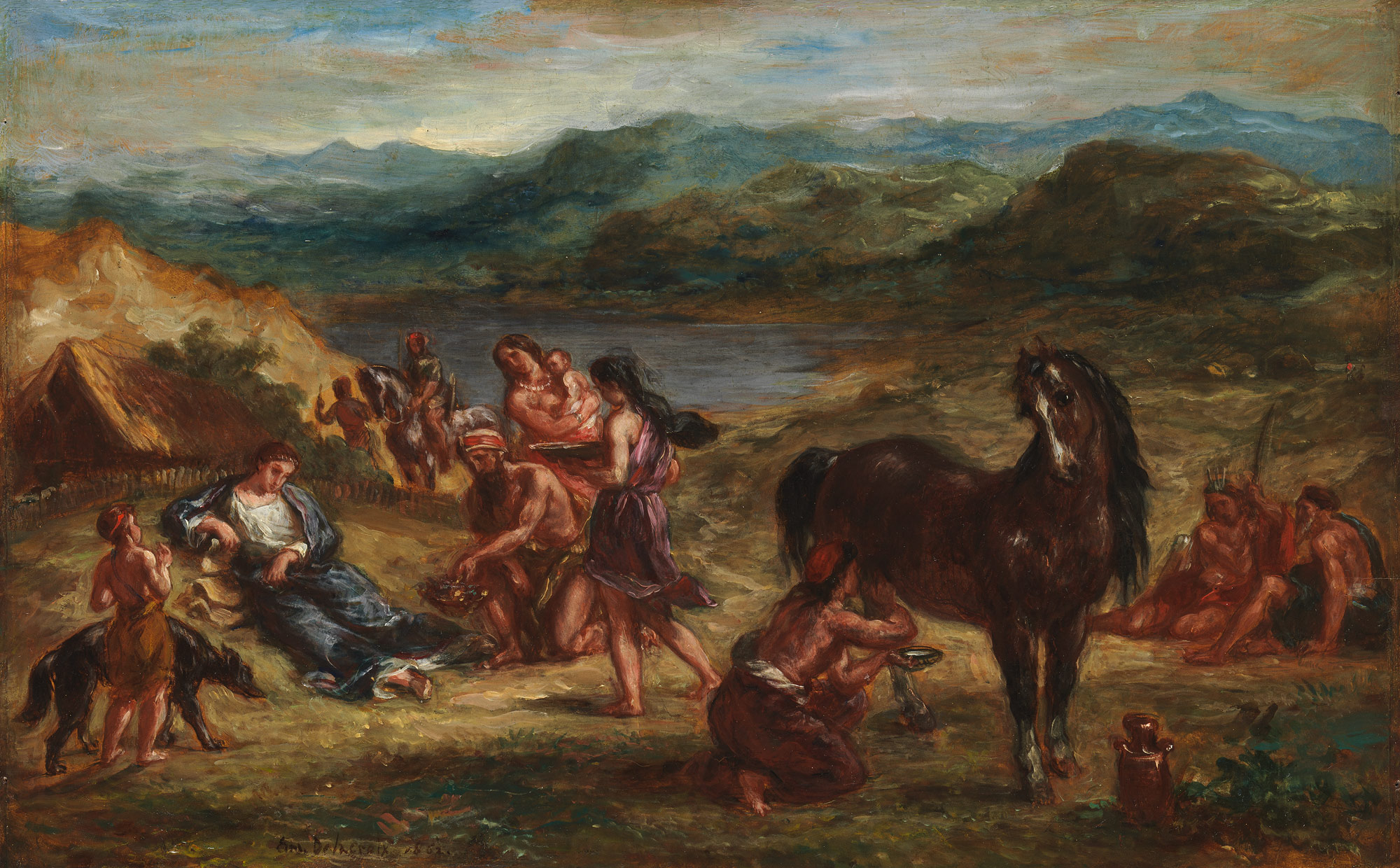
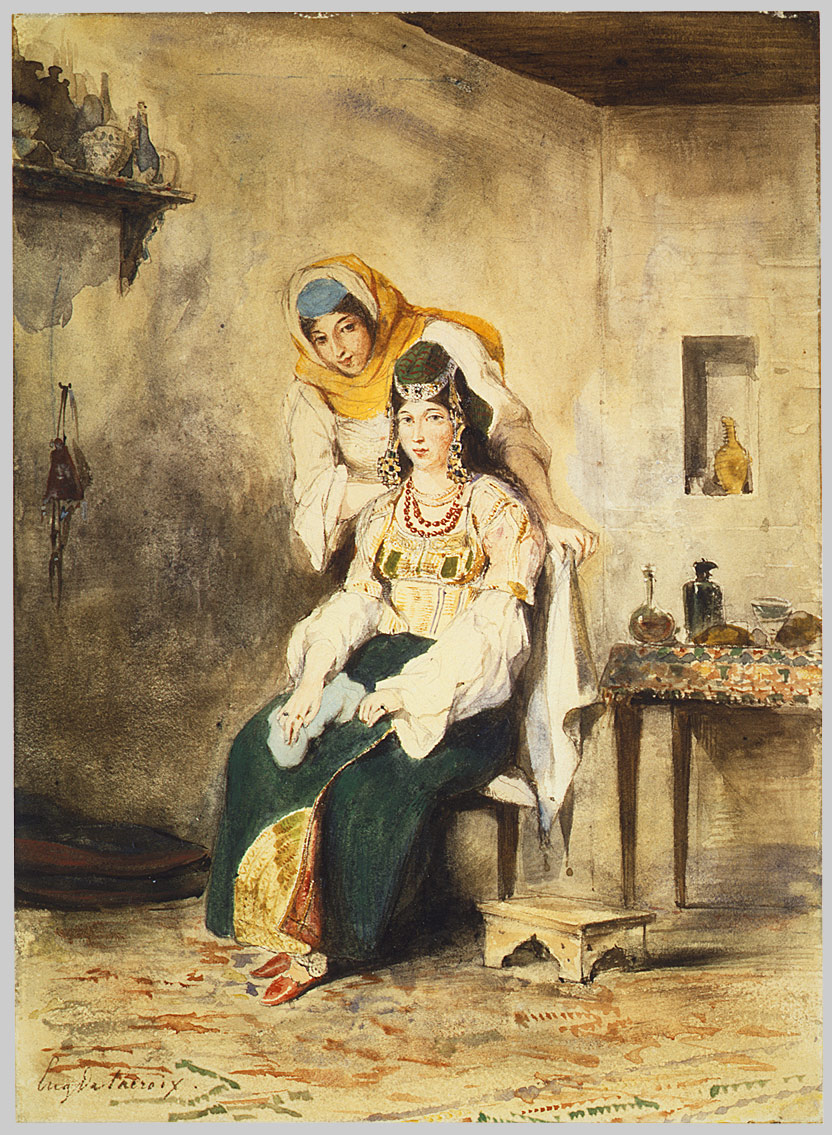
1832, (Metropolitan Museum of Art) Bequest of Walter C. Baker, 1971
Eugène Delacroix, Basket of Flowers. 1848-1849. 1849 Salon. Oil on canvas. 107 x 142 cm. The Metropolitan Museum of Art, New York Image © The Metropolitan Museum of Art
Eugène Delacroix, Christ in the Garden of Olives. 1824-1827. 1827-1828 Salon. Oil on canvas. 294 x 362 cm. Church of Saint-Paul-Saint-Louis, COARC, Paris © COARC / Roger-Viollet
Eugène Delacroix, Lion Hunt. 1854-1855. Exposition Universelle (1855). Oil on canvas. 173 x 361 cm. Musée des Beaux-Arts,Bordeaux © Musée des Beaux-Arts, ville de Bordeaux. Cliché L . Gauthier, F . Deval
Eugène Delacroix, The Lamentation (Christ at the Tomb).1847. 1848 Salon. Oil on canvas. 161.3 x 130.5 cm. Museum of Fine Arts, Boston. Photograph © 2018 Museum of Fine Arts, Boston



